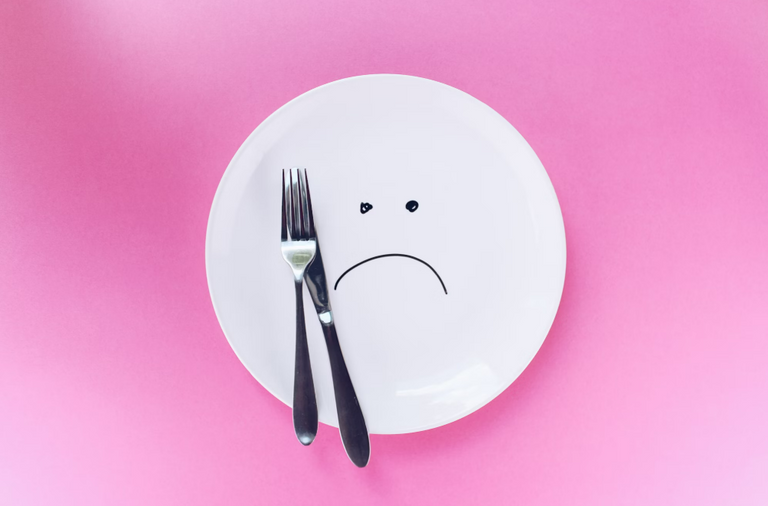Another very big issue that occurs due to consuming caffeine on an empty stomach is adrenal fatigue. The adrenal glands of your body produce stress hormones that give you energy throughout the day. When you consume caffeine daily without eating anything, these glands start working which results in their efficiency decreasing with time. As a result of this, you feel tired, motivation decreases and your patience also decreases. This is a silent issue that slowly harms your overall health.
This habit also has a very negative effect on the digestive system. When you drink caffeine on an empty stomach, it irritates your stomach lining, which can lead to gastritis and ulcers in the long term. This is not just a short-term discomfort but a serious health issue that hardly gets better once it is over. Therefore, drinking coffee or tea on an empty stomach can be a dangerous habit that can trigger digestive disorders.
Another big issue with caffeine is that it also affects your micronutrient absorption. When you consume caffeine on an empty stomach, it does not allow your body to properly absorb essential minerals like magnesium, calcium and iron. These deficiencies can cause a lot of health problems in the long term, like weak bones, muscle cramps, and even hair fall. This can especially become a problem for people who are not careful about their nutrition.
One psychological problem that people often ignore is caffeine dependency. When you start consuming caffeine without eating, slowly your body gets addicted to it. You find it difficult to be functional without caffeine, and if you don't have caffeine for a day, you start to experience headaches, irritability and fatigue. This is an unhealthy cycle that can be harmful to both mental and physical health.
Ultimately, this habit can also harm your skin health. Drinking caffeine on empty stomach increases dehydration and stress hormones, which can cause breakouts, dull skin and premature aging. This can be especially problematic for people who already have acne or sensitive skin. For this reason, it is very important to take care of hydration and proper nutrition before drinking caffeine as soon as you wake up in the morning to maintain your overall health and mental well-being.
Another big disadvantage of caffeine and eating empty stomach is that it can disrupt your sleep cycle. When you take caffeine in the morning without eating anything, it makes your brain artificially alert, but by the end of the day you start feeling over-exhausted. This imbalance disturbs your body's natural energy regulation, which results in you not being able to sleep properly at night. When sleep is not complete, you feel the need for more caffeine the next day, and this forms an unhealthy loop that can be very harmful for long-term mental and physical health.
When you consume caffeine while fasting or on an empty stomach, it also disturbs the balance of your hormones. The balance of hormones like insulin, serotonin and dopamine is very important for a healthy body. Taking caffeine without eating increases insulin resistance, which can increase the risk of diabetes. It also impacts serotonin levels, which are important for your mood and emotional stability. This imbalance can make you feel overly emotional or overwhelmed over small things.
If we talk about brain function, consuming caffeine on an empty stomach also affects your cognitive performance. You may feel active for a few hours at first, but as the effect of caffeine wears off, your concentration and memory weaken. This can be a big issue especially for students and professionals who demand focus and creativity throughout the day. Caffeine provides short-term alertness, but without proper nutrition, your long-term brain health can be compromised.

source
Another harm that people often ignore is the effect of caffeine on your heart health. When you consume caffeine without eating, it rapidly increases your heart rate and blood pressure. This can be especially dangerous for people who already suffer from hypertension or cardiovascular issues. Consuming caffeine like this on a regular basis can cause heart palpitations, irregular heartbeat and long-term blood pressure issues, which are a serious risk to health.
Finally, its psychological impact is also very strong. When you start your day with just caffeine without eating anything, you put your body in stress mode. This activates chronic stress response, which gives rise to anxiety and restlessness. This can be the cause of not just mood swings but overall mental well-being as well. Drinking empty stomach and caffeine is an unhealthy habit which can slowly exhaust both your body and mind. Therefore, it is very important to adopt a balanced lifestyle and take proper nutrition along with caffeine to maintain your energy levels and mental clarity.
When you consume caffeine on an empty stomach every day, it puts a lot of pressure on your liver. The job of the liver is to filter toxins and regulate metabolism, but when you take caffeine without eating anything, it can disturb the balance of the liver enzymes. This can lead to metabolism issues and fat storage after a period of time, which can lead to weight gain and digestion problems. Therefore, taking caffeine without breakfast becomes an unnecessary burden for your liver.
Another negative effect of caffeine is that it suppresses your hunger signals. When you get up in the morning and consume only caffeine without eating anything, initially you do not feel hungry, but after some time the blood sugar levels start dropping. These sudden drops can result in dizziness, weakness and mood swings. This can be even more dangerous for people who are facing issues of diabetes or low blood sugar.
Another big issue which people often ignore is the impact of caffeine on your gut health. Consuming caffeine in empty food can disturb the balance of your gut bacteria, which are very important for digestion and immunity. This imbalance can trigger issues like bloating, acidity and IBS (Irritable Bowel Syndrome). No matter how healthy a diet you follow, if your gut is weak then your body will have difficulty absorbing nutrients.
If we talk about stress and mental clarity, consuming caffeine on empty stomach causes cortisol levels to spike. Cortisol is a stress hormone that improves short-term alertness, but if it stays continuously high then it can cause anxiety, panic attacks and depression. For people who are already facing stress and workload, this can be even more damaging. This habit is not just a routine but can become a silent trigger that slowly impacts mental health.
Ultimately, if you are interested in fitness or muscle building, consuming caffeine on an empty stomach can slow down your progress. It is important to take proper nutrition before workout to provide energy to the muscles. But if you rely only on caffeine, it negatively affects your muscle recovery and endurance. It temporarily boosts stamina but in the long term it negatively impacts your physical strength and performance. For this reason, use caffeine as a support, but making it a part of your daily routine without proper nutrition is not good for health.
Another disadvantage of drinking caffeine on empty stomach is that it affects the quality of your sleep. People often think it is problematic to only consume caffeine at night, but consuming caffeine as soon as you wake up in the morning without eating anything can also disturb the body's natural sleep cycle. It works by keeping the brain overactive throughout the day, making it difficult to relax at night. This issue can be even more serious for people who anyway suffer from insomnia or a disturbed sleep cycle.
If we talk about heart health, then consuming caffeine on an empty stomach can spike the blood pressure. This can become a problem especially for those people who are already facing hypertension or heart issues. When you consume caffeine without eating anything, it triggers the body's sympathetic nervous system, which activates the fight-or-flight response. This results in faster heart rate, and if this habit is followed daily, it can have a very negative effect on cardiovascular health in the long term.
Consuming caffeine on an empty stomach also reduces the risk of dehydration. Coffee and tea are diuretics, which flush water and essential electrolytes from the body. When you consume caffeine without water or proper hydration, it dehydrates the body even more, resulting in fatigue, headaches and dry skin. This can be especially dangerous during hot seasons, when the body already needs more water.
Many people use caffeine to control appetite, but it also has a negative impact on metabolism. When you take caffeine on an empty stomach, it temporarily suppresses your digestive system but after some time it leads to sugar cravings. This can lead to unhealthy snacking and overeating, which in the long term can lead to weight gain and trigger metabolic disorders. This cycle can be problematic especially for people who are already focusing on their diet and fitness.
Eventually, taking caffeine on an empty stomach can become a dangerous habit for mental clarity and focus. Initially it gives a boost of alertness and energy but gradually it can lead to brain fog and overthinking. This can be a serious issue especially for students and professionals who depend on caffeine to increase their productivity. It is important to maintain a balance so that caffeine becomes a helper for you and not an addiction that slowly damages your mental and physical health.



